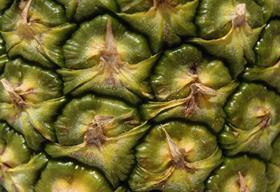
Ten-year-old Thai farmer cooperative Siamtana Fruit Export has been awarded a government grant to kick-start Thailand’s commercial fresh pineapple exports, and has its sights firmly fixed on markets in the Middle East and Asia.
Although it ranks as the world’s fourth largest pineapple producer, Thailand’s fresh exports remain negligible, despite significant trade to the dried, tinned and pulped sectors, explains Suparat Tanachinpisut, Siamtana’s general manager and niece of the cooperative’s founder Veesut Wittayanon – a pineapple grower by trade.
“The Thai government has given my family and the cooperative we have created a Bt10m-grant (US$293,858) to help change this,” she told Fruitnet.
Further funds are due upon completion of Siamtana’s new juice factory, Tanachinpisut said.
“Our company was chosen by the Thai government as the best enterprise to support, because we had already formed a large cooperative(comprising 68 growers farming over 800 acres in the Maung district) that could grow high volumes,” she said. “We are already GAP-certified and have also already exported small volumes to Egypt (Carrefour) and Kuwait (Taza Juice Factory) since 2014.”
p.p1 {margin: 0.0px 0.0px 0.0px 0.0px; text-align: justify; text-indent: 11.3px; line-height: 13.0px; font: 8.0px 'Adelle Light'}span.s1 {letter-spacing: -0.1px}The cooperative currently has the capacity to process 100 tonnes of export-grade, GAP-certified Smooth Cayenne and MD2 pineapples per week. This volume could quickly increase, said Tanachinpisut, since many more Thai farmers are keen to join the Siamtana cooperative.
The government grant has so far helped fund a waxing and chilling facility, which will help extend pineapple shelflife and facilitate greater exports, she said, as well as finance a juicing facility.
“The government’s investment in our facilities has been very significant because despite the fact we have already exported fresh pineapples successfully for nearly two years to Kuwait and Egypt, we were getting on occasion problems with some of the fruit being over-ripe on delivery,” Tanachinpisut said. “Because we were packing the fruit into 40ft reefers at room temperature the core temperature wasn't ideal. Now we have the facilities to wax and pre-chill the pineapples before loading, this problem will be avoided.
“The completion of the juice factory will allow us to juice any surplus that we grow that we are unable to sell. Previously we had to sell often at a loss to the canning/juice companies. The funding will also help significantly in the initial costs of exportation. Small Thai farmers are used to receiving payment as they sell.'
Going forward, Siamtana sees its future export markets as mainly in Asia and the Middle East, but is also exploring other destinations – logistics permitting.
“As far as the advantages we have over other countries in exporting fresh pineapples is concerned, geographically we are in a better position for the Middle East over our biggest competitor, and our pineapples are far sweeter and provide a larger pulp yield,” said Tanachinpisut.



